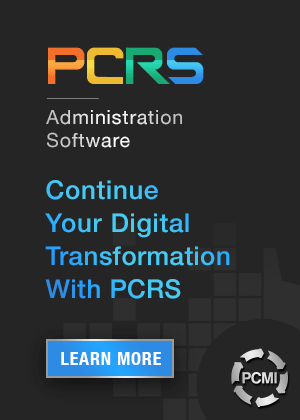Oregon Court Holds Commercial Service Contracts Are Regulated, But Not as Insurance
Each of the 50 states regulate commercial service contracts differently. This article, by three expert attorneys, discusses a recent ruling from the Oregon Court of Appeals, which will have implications for sellers and issuers of commercial service contracts throughout the country.
Editor's Note: This column, written by
Locke Lord LLP's Brian T. Casey,
Jon L. Gillum, and Greg Norton,
is the latest in an ongoing series of contributed
editorial columns. Readers interested in authoring
a contributed column in the future can
click here, scroll to the bottom, and click "Contributors"
to see the Guidelines for Editorial Submissions page.
By Brian T. Casey, Jon L. Gillum, and Greg Norton
The Oregon Court of Appeals recently held in a rare judicial appeal from an administrative law judge's decision that a service contract (commonly referred to as an extended warranty) covering commercial property is subject to Oregon's consumer service contract laws. Like many other states, Oregon has codified a legal framework for regulating service contracts as a form of "insurance-light" for third-party contract issuers. A service contract is typically an agreement by the issuer to repair, replace, or indemnify for the operational or structural failure of property resulting from a defect in materials, workmanship, or normal wear and tear, in exchange for the payment by the contract purchaser.
As service contract laws have evolved over the years, they have been the subject of industry-led expansions to the definition of a service contract. Indeed, the consumer electronics industry, namely cellphone device manufacturers and their distributors, successfully augmented coverage for "accidental damage from handing" and "incidental indemnity." Similarly, the automobile industry's protection products segment has gone to the legislative well many times to include new products like tire and wheel damage coverage, paintless dent removal, vehicle appearance products, vehicle theft deterrent and recovery products, and key fob replacement, collectively known in the industry as "ancillary products," as permissible forms of service contracts, which eventually spawned its own codified service contract product category known vehicle protection products. However, when service contracts cover commercial property, numerous regulatory classification questions arise.
How Are Commercial Service Contracts Regulated?
Service contracts are plentiful in the consumer automobile, electronics (computers, TVs and smart phones), and residential home (HVAC systems and appliances) industries, and are typically covered by a well-defined legal framework, with fairly wide variations among the states. A third-party issuer of these contracts (i.e., not the manufacturer or seller of the covered property) would be issuing an insurance policy, and thus regulated as an insurance company, but for state service contract laws. Such laws are usually — but not always, as in Oregon — found within state insurance codes, and these laws deregulate the product, when issued by a person that is not the manufacturer or otherwise having control over the product's quality, from being insurance. Service contract providers or obligors must be licensed or registered in many states (as must administrators and sellers in some states) and are typically subject to certain financial solvency requirements, like insuring the service contract obligor's performance risk under a contractual liability reimbursement insurance policy. Service contract laws also mandate certain terms and conditions, such as contract holder cancellation refund rights and prohibitions on use of insurance terminology.
Service contracts also exist in the commercial products market as well. Examples include service contracts for farming and agricultural equipment, commercial trucks, and medical equipment used in hospitals. Indeed, some manufacturers of only commercial products, or their dealers, may routinely enter into service contracts with their customers without ever having encountered service contract laws, instinctively thought to be relevant only to retail consumer goods. However, one consistently gray area1 under state service contract laws is the regulatory status of service contracts between two commercial parties (i.e., when the owner of the covered property is a commercial entity rather than an individual consumer, or when the covered property is used for commercial purposes, in such cases as agricultural equipment, tractor trailers, or hospital equipment). Some states' service contract laws expressly exclude commercial service contracts from their scope, recognizing that commercial service contract purchasers do not need the same protections as purchasers of consumer service contracts. However, Oregon's service contract laws do not, and only expressly exclude product maintenance agreements and true warranties (i.e., those typically governed by the Magnuson-Moss Warranty Act2 when offered for consumer products, and those warranties that are generally unregulated when offered to commercial parties).3
In general, (a) some states have service contract laws that expressly apply to commercial service contracts (and therefore may make applicable any corresponding obligor, seller, and/or administrator licensing requirements and form-filing requirements as well as exemptions from regulation as insurance);4 (b) some states exempt commercial service contracts their service contract laws and further state that such contracts are not considered to be insurance;5 (c) many states exempt commercial service contracts or commercial products from their service contract laws, or otherwise define a service contract by reference to a "consumer," but are silent as to whether such commercial contracts are considered to be insurance;6 and (d) some states do not expressly address the difference between commercial and consumer service contracts.7
In 1997, the National Association of Insurance Commissioners promulgated its Service Contracts Model Act in response to regulatory disputes over whether a service contract was an insurance contract. This model law excludes (i) commercial transactions, and (ii) service contracts sold or offered for sale to persons other than consumers, recognizing the realities that commercial purchasers of service contracts do not need the same regulatory consumer protections, such as "free-look" cancellation rights or disclosures about a service contract provider's obligations being insured by a contractual liability reimbursement insurance policy, afforded to individuals who buy service contracts for common household goods. This rationale similarly permeates the distinction between the regulation of commercial insurance versus personal lines insurance products.
While not free from doubt, the likely legislative intent in most states with commercial service contract carve-outs is that they are intended not to be regulated in either capacity (i.e. neither regulated as service contracts nor regulated as insurance products). Indeed, some state insurance departments have taken informal enforcement positions to this effect. Recently in its 2023 legislative session, Georgia codified this result, following inquires to its insurance department as to whether commercial service contracts were insurance policies.8
Given this murky landscape, there is a possibility that, in some states, a commercial service contract could be considered an unauthorized insurance product, exposing the obligor, seller, and administrator to the risk that they have engaged in the unauthorized business of insurance (and potential resulting regulatory fines, criminal violations, revocation or suspension of existing service contract licenses, and liability for payment of state insurance premium taxes on the fees collected from sales, if recharacterized as insurance premiums). Similarly, insurance companies that offer commercial liability insurance policies that insure the performance obligations of commercial service contract obligors could potentially face liability for aiding and abetting unauthorized insurance conduct in states that do not expressly de-regulate commercial service contracts as non-insurance products. With that said, numerous industry participants do business in the nebulous legal landscape by offering commercial service contracts nationwide without clear legal authorization, but also without notable enforcement actions.
Oregon Court of Appeals Ruling
In TruNorth Warranty Plans of North America v. Dept. of Consumer and Business Services, 327 Or.App. 603 (August 23, 2023), the Oregon Court of Appeals found that a vehicle service contract issued to cover a commercial vehicle is regulated under the state's service contract act, ORS §§ 646A.150 et seq. On the one hand, this case is good news for the commercial service contract industry, in that the Oregon Division of Financial Regulation did not allege that TruNorth's commercial vehicle service contract was an insurance policy. On the other hand, the court nevertheless concluded that the contract is regulated under the state's service contract act.
The TruNorth opinion holds that a commercial service contract purchaser is a consumer, notwithstanding several markers in the Oregon service contract act and its legislative history that support the interpretation that a regulated service contract is one issued to and purchased by a retail consumer, or for personal, family or household products. Indeed, the Oregon service contract act's preamble states in relevant part that its purpose is to
"...Encourage innovation in the marketing and development of more economical and effective means of providing services under service contracts, while placing the risk of innovation on the obligors rather than on consumers..."9The reference to consumer, which is not defined in the act, also appears in two other sections of the act: (i) the definition of a service contract, requiring that payment of the "...[c]onsideration for a service contract must be stated separately from the price of the consumer product"10 and (ii) "[i]f a service contract seller is not the same person as the obligor under the service contract, the service contract seller shall remit the agreed-upon consumer purchase price of the service contract to the obligor..."11
While not addressed in the opinion, an Oregon service contract must specify its covered "merchandise," a somewhat generic term which could mean both personal and commercial merchandise.12 Interestingly, the Oregon Division of Financial Regulation did not assert that TruNorth's commercial service contracts were insurance products, a tack that the Washington Insurance Commissioner has taken in several service contract regulatory disputes in that state. It should also be noted that in judicial appeals from a final regulatory action in which the regulatory agency is the victor, the appellant bears a very high burden to overturn the regulatory agency's win and must demonstrate to the court that the regulatory agency's action was arbitrary and capricious or clearly unsupported by relevant law.
Nevertheless, given the absence of a statutory definition of "consumer," and based on its arguably plain meaning as "one that utilizes economic goods," the court affirmed the administrative decision that a consumer can include consumption of goods for both personal and commercial or business purposes. Supporting the court's interpretation is the Oregon service contract act's definition of "service contract holder"13 and its use of the term "person" that purchases or holds a service contract. The term "person" includes, as is oftentimes that case in statutory definitions, not only natural persons but also many forms of business entities.14 Admittedly, certain other statutes within the Oregon Insurance Code make a clearer distinction between commercial and non-commercial products by describing the latter as insurance primarily for "personal, family or household purposes" or "personal insurance."15
Conclusions
One upshot from the TruNorth decision is that issuers of commercial service contracts, at least in Oregon and other states in which these contracts are subject to service contract laws, may be in a better position to be taxed for federal insurance tax purposes as a property and casualty insurance company, rather than plain vanilla corporation, inasmuch as the Internal Revenue Service recognizes that regulated service contracts can be treated as insurance policies for taxation purposes, allowing these obligors to file an IRS Form 1120-PC (U.S. Property and Casualty Insurance Company Income Tax Return) if their primary business is issuing regulated service contracts. Generally, taxation as an insurance company is preferable because it allows deferral of the recognition of premium income with offsetting deductions for insurance liability reserves. In contrast, commercial service contract obligors that historically filed IRS Form 1120-PC for their operations under the assumption that their commercial service contracts are not regulated in any respect may not be in the best position to support insurance company taxation status.
This case should be a warning to obligors and sellers of commercial service contracts that such contracts are subject to regulation in Oregon and may be subject to regulation under state service contract laws in other states. However, as noted above, the question remains whether these contracts might also be found to be insurance in some state. In other words, the TruNorth opinion is a wake-up call that commercial service contract obligors cannot assume that their products are simply unregulated. In addition, the interpretation of the term consumer to include commercial buyers in Oregon could also lead to perverse interpretive results in other Oregon statutes referencing a consumer both within and without its insurance code. Accordingly, the service contracts industry should consider mounting an effort for legislative change to solidify that commercial service contracts are neither regulated service contracts nor insurance policies.
Footnotes:
1. For a discussion of other gray areas involving service contracts and warranties, see Brian Casey, Jon Gillum, and Greg Norton, "As EVs Surge, Regs for Charter Warranties Remain Murky," Law360 (Apr. 3, 2023); Brian T. Casey & Jon L. Gillum, "Extending the Murky Divide Between Warranty and Insurance," Law360 (Aug. 21, 2017); Brian T. Casey & Jon L. Gillum, "Okla. Ruling Highlights Nuances In Drafting Service Contracts," Law360 (Jun. 15, 2020).[go back]
2. See Brian T. Casey & Jon L. Gillum, "Navigating Federal and State Rules For Extended Warranties" Law360 (Feb. 8, 2019), republished in Warranty Week (2019) and the Journal of Consumer & Commercial Law (Vol. 23, No. 1, Fall 2019).[go back]
3. ORS § 646A.150(2).[go back]
4. K.S.A. § 40-201(a)(2)[go back]
5. S.C. Code Ann. § 38-78-10[go back]
6. Wis. Stat. § 616.52[go back]
7. UCA § 31A-6a-101[go back]
8. See, GA HB 222 amending O.C.G.A. § 33-7-6 to exclude commercial service contracts from the definition of property insurance.[go back]
9. ORS § 646A.150(1)(b).[go back]
10. ORS § 646A.154(1)(c).[go back]
11. ORS § 646A.154(10).[go back]
12. ORS § 646A.156(5).[go back]
13. ORS § 646A.152(5).[go back]
14. ORS § 646A.152(3).[go back]
15. See, e.g. ORS §§ 746.600(10), (24) and (33); 744.077, 746.213(2) and 746.663.[go back]
About the Authors

Brian T. Casey is a Partner in the Atlanta office of Locke Lord LLP.
As Co-Leader of Locke Lord's Regulatory and Transactional Insurance practice group, and a member of the Firm's Corporate, Capital Markets and Health Care practice groups, Brian focuses on corporate, merger and acquisition, corporate and structured finance and other transactional, and regulatory matters for corporate clients in the insurance, financial services and health care industries. His clients include insurance companies, insurance holding companies, managing general agents and insurance agencies, third party and claims administrators, banks and other financial institutions, investment banks, reinsurance companies and insurtechs. Brian is a sought after speaker and well-published author on many legal and regulatory topics affecting the insurance industry.
Jon Gillum is Senior Counsel in the Regulatory and Transactions Insurance Practice Group in the Austin office, and Greg Norton is an associate in the New York City office of Locke Lord LLP.
The opinions expressed are those of the author(s) and do not necessarily reflect the views of the firm, its clients, or any of its or their respective affiliates. This article is for general information purposes only and is not intended to be and should not be read or construed as legal advice.








